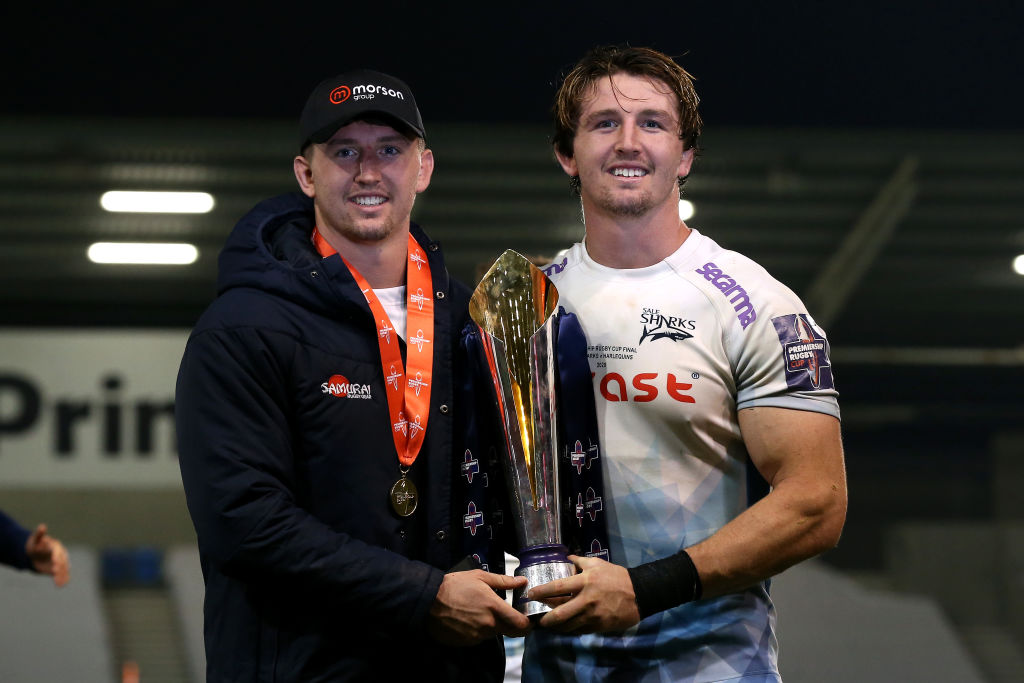
Sid Sutton is the man charged with boosting Sale Sharks‘ commercial and on-field drive for success, having just been appointed as their chief executive in support of rugby director Steve Diamond. He tells NEALE HARVEY how he intends going about the job.
What a time to become CEO of a Premiership club… are you mad?
It’s an interesting time, for sure, but I’ve been on the board here for the last two years – an opportunity which was presented to me through working with co-owner Simon Orange for the last seven years. Simon and I have a great working relationship and the challenges within a professional rugby club are similar to those of any other business. It’s a very ambitious club, supported by highly ambitious owners and the two most important jobs I have are to ensure the finances are in place to secure the future of the club and the staff are able to return to some sort of normality as quickly as possible.
How pleased were you with the strides Sale Sharks were making pre-Covid?
I don’t think anyone can underestimate the progress the club has made since Simon and Ged Mason took over four years ago. The budget is there, Steve Diamond has formed a fantastic squad and it’s been a really exciting time for the club. You sit on a board and you understand what’s going on in a financial and commercial sense, but it is on the pitch where everything really counts and the team has done really well with a number of higher and higher league finishes.
Sale recently clinched their first silverware since 2006 in the shape of the Premiership Cup. Small beer to some maybe, but how significant a moment for you?
It was a fantastic boost for everyone – a real high for the club and a special moment that you have to take on board. Unfortunately, that feeling got dramatically removed because of the Covid outbreak which denied us a shot at reaching the play-offs and maybe winning the title, but that shouldn’t be allowed to detract from what was a significant achievement. The club has dusted itself down now after the most disappointing end to last season and it was a difficult time, but we were also acutely aware the pandemic has caused far greater devastation than anything we experienced. The club is full of quality throughout and I believe we will come back stronger for this.
Are you as confident as you can be that the problems that ruined the end of last season are sorted?
The RFU have done a full audit/investigation on us and we’ve ticked every box. Sale have been doing everything they should have been and more in a lot of areas. We worked closely with the RFU and I’ve taken the lead on this with the mindset that good must come from the experience. The intent and purpose now is to share the learnings and evolve the minimum standards for all clubs so the rugby world continues to operate successfully.
What are the other main priorities on your watch now?
To continue to build on the recent success, evolve as a club and at the same time overcome the challenges posed by Covid. We have a world-class squad and now we have to ensure that we have the infrastructure, support systems and culture to maximise the opportunities presented to us. I’m very keen to develop all the staff, both playing and non-playing, and I want to do this by focusing on their wellbeing, education and employment prospects for the future.
You’ve worked with Simon Orange for a while, so how aligned are your philosophies?
We share the same objectives around winning and wanting to succeed and we also want to make sure there’s an element of enjoyment in the way we go about it. A lot of that comes down to culture and that’s where I’m hoping to make a significant impact.
When you talk of ‘culture’ can you expand on exactly what you mean?
I need to build on the quality culture that’s here. There is a tremendous togetherness off the pitch like I’ve never seen before, but we need to ensure we maintain our winning ways by putting stronger support systems in place. I’m really keen on player welfare, really keen on the transitional programmes for players and really keen on supporting people in a way that enhances their on-field activities. That means creating an emotional sort of programme that takes into account all of rugby’s highs and lows and we need to ensure we are in a more joyful environment where the culture is all about autonomy and expressing yourself, not being fearful of making mistakes.
Sounds like you’re aware of how fickle a rugby player’s career can be with issues over contracts and injuries never far away?
I’m extremely conscious of that and I would like every player to leave this club in a better position than when they joined – and that goes from our academy players right through to the senior pros. If we achieve that I believe we’ll be doing something correct because whatever a player needs, whether it’s mental fitness, personal wellbeing or post-career advice, if we can make their lives happier and more fulfilled whilst being here, I’ll be satisfied with that.
Academy drop-out rates are notoriously high, so are you really as concerned about the futures of those players as you say you are?
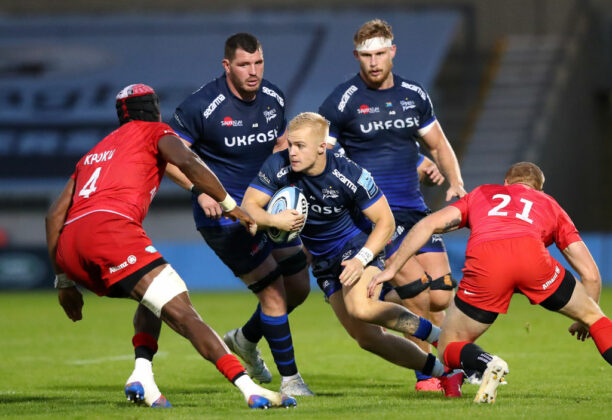
I’m utterly passionate about the academy and it’s critical to the future of the club. The academy here is a big success with the Curry and James brothers being great examples, along with many others, but I’m also acutely aware that I want to focus an equal amount of attention on the players who don’t make it because there are a large number of those. Education is going to be a huge part of that and I’ve already had several meetings to ensure that attitudes are correct and there’s a willingness to learn, in the knowledge of the reality that there is life outside rugby as well. That is critical for me and I’ll judge myself on the success of how we treat people at all levels of the club. You look at other successful clubs and you can see how good their culture is because players want to stay there.
How robust are Sale’s finances?
We have been very prudent with our money and the owners are very generous, however the challenge of no income is obviously a big one. We’re seeking to further embed our relationship with our sponsorship partners and enhance the fans’ experience when allowed back into our current stadium. These two factors are the main sources of income we can affect so we have to focus on these. As we start achieving more success on the field it will be easier getting the increased supporter numbers we need to become financially successful. Critical to this success is owning our own stadium so we can control and improve the matchday experience for our supporters.
Sale recently had their initial stadium proposals for a site at Crossford Bridge knocked back, so what’s the latest there?
We are progressing and have opportunities which we’re close to announcing. There’s a large commercial and financial imperative to get a dedicated home because at the moment there are too many uncontrollables over what we can and cannot do at the AJ Bell Stadium. We’re currently quite curtailed in that respect but regardless of that, there’s no better experience for the fans than to see us winning and that’s always our ultimate goal. We’re exploring all options for the new stadium but in the meantime, we’ve got to make sure that we engage better with our supporters, understand what they want, continue that engagement and embed it within the club.
How confident are you that Premiership Rugby will deliver a strong new TV deal for when BT’s current one finishes next year?
I’m not involved with this yet but Simon Orange is confident that (Premiership CEO) Darren Childs and his team will do a good job here. He is also very impressed with CVC and thinks they will help in significantly increasing revenues into rugby, so I’m hopeful that long-term, professional rugby is in a good place. It will be tough in the short-term but we’ll get through and hopefully prosper in the future. I am worried about grassroots rugby, though, and we need to ensure the amateur clubs get whatever support they need to survive. I know Simon and Ged are also helping out Sale FC but there are so many clubs that need to get going again as soon as possible so they can survive. Hopefully, the government appreciate this and will be doing what they can to assist.
How confident are you that Simon and Ged will continue to finance things and get your club through this pandemic intact?
Extremely confident. We will invest more into the club when needed and we’re here for the long term. There are challenges at the moment and we’re hoping the government will support the rugby world because it’s needed, but in the meantime we are doing all we can to ensure Sale Sharks not only survive, but thrive flourish and achieve our full potential.
Your relationship with rugby director Steve Diamond is critical to the club’s fortunes, so how well do you two know each other and get on?
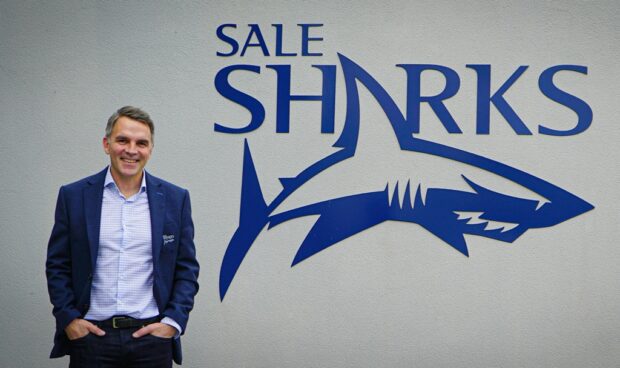
I’ve known and worked with ‘Dimes’ for a good while and we work well together and complement one another. He’s great – done it all and been there. He rallies the troops and the success we had last season showed that he’s got the troops fully behind him and they all think it’s a great place. But Steve has been doing everything at Sale for years and if we’re going to achieve the success we’re targeting long-term then the club needs more resource – and that’s what I am. I’ll be focussed on the commercial side of the club which will allow Steve to spend more time on the rugby. Hopefully, between us we’ll bring more success to both sides of the business!
You don’t have the biggest squad, so does Steve have the ability to recruit?
Our squad is pretty much in place so I don’t foresee much recruitment going forward, but I’m sure the owners will continue to support Dimes as and when he needs it. If we need players and have the salary cap space then we’ll get them.
Any plans to replace injury victim Manu Tuilagi in the short-term? I assume his money comes of the salary cap so the option is there if you need it?
A player’s money doesn’t come off the salary cap because they are injured, although there is a limited allowance to replace injured players. Manu is a world-class player and will obviously be missed but there are no plans to replace him at the moment as we have some great centres and more coming through from the academy.
As the North-West’s only fully professional rugby club, would Sale Sharks benefit from ring-fencing in order to bring more stability to the business?
Ring-fencing is a complicated concept and definitely has positives and negatives. I think overall the financial well-being of professional clubs trumps everything, though, because if we don’t make the game financially stable there won’t be a game. Ring-fencing will play a big part in helping the industry become viable but we also have to ensure that the league remains competitive and there are very few ‘dead rubbers.’ As a sports fan I like promotion and relegation but the wellbeing of the sport in the long-term has to be the main priority. Having said that, my concern is it can become a little bit sterile if you’re cemented in the bottom half of the table and there are pros and cons to that, so we must be very careful how we proceed.
Do you have a view on season structure and the club-versus-country debate?
It’s a difficult subject because club rugby and international rugby have so many different priorities. Obviously, they are reliant on each other and have to make it work but there are only so many weeks in the year and player welfare is so important that we have to be careful that they don’t play too much rugby. As I said earlier, player welfare and wellbeing is something I’m very passionate about so I sincerely hope Premiership Rugby and the RFU can continue to figure things out.
Last season’s fifth place finish was Sale’s highest since 2009, are you confident you can now become regular top four contenders?
That’s the aim, of course. Dimes will probably frown on me for saying that but you can see the ambition from the squad we’ve put together and the investments we’re making in all areas on improving the club. It’s a shame we didn’t get a shot at the play-offs this year but that remains the target and that disappointment will act as additional motivation. As we’ve seen with other clubs, if you keep working hard and developing year on year, you can be successful. I’m looking forward to building on the strong foundations that have already been laid.

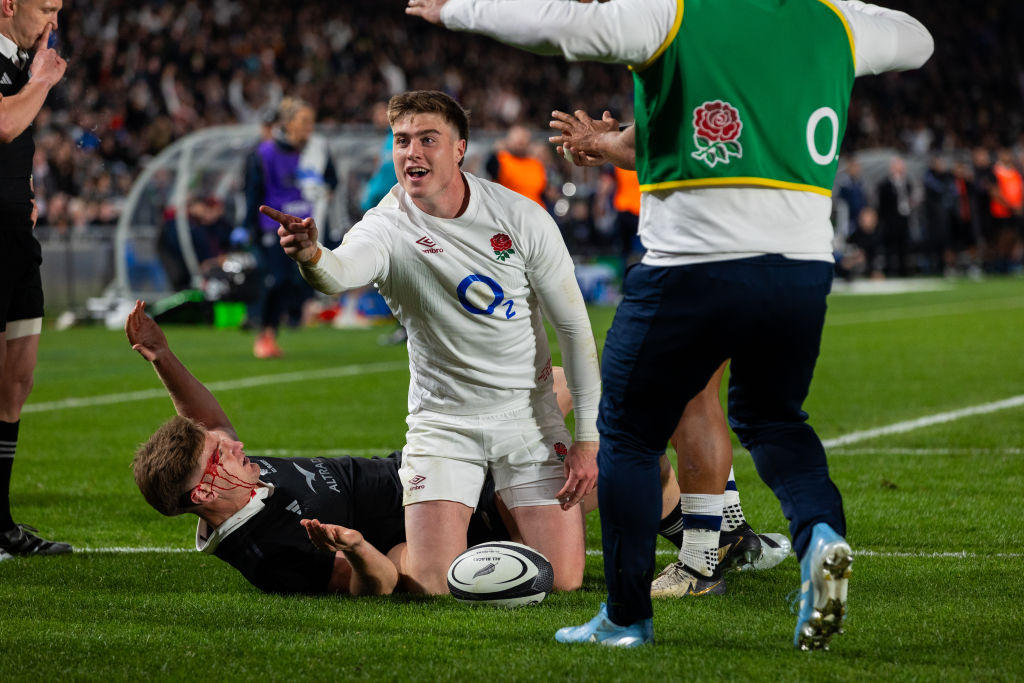
British and Irish Lions
From Leicester reject to a British and Irish Lion: Tommy Freeman’s stellar rise
Latest News
Steve Diamond: Franchise league a good idea

International Rugby
Touring Japan with Wales is my goal says Dan Edwards
















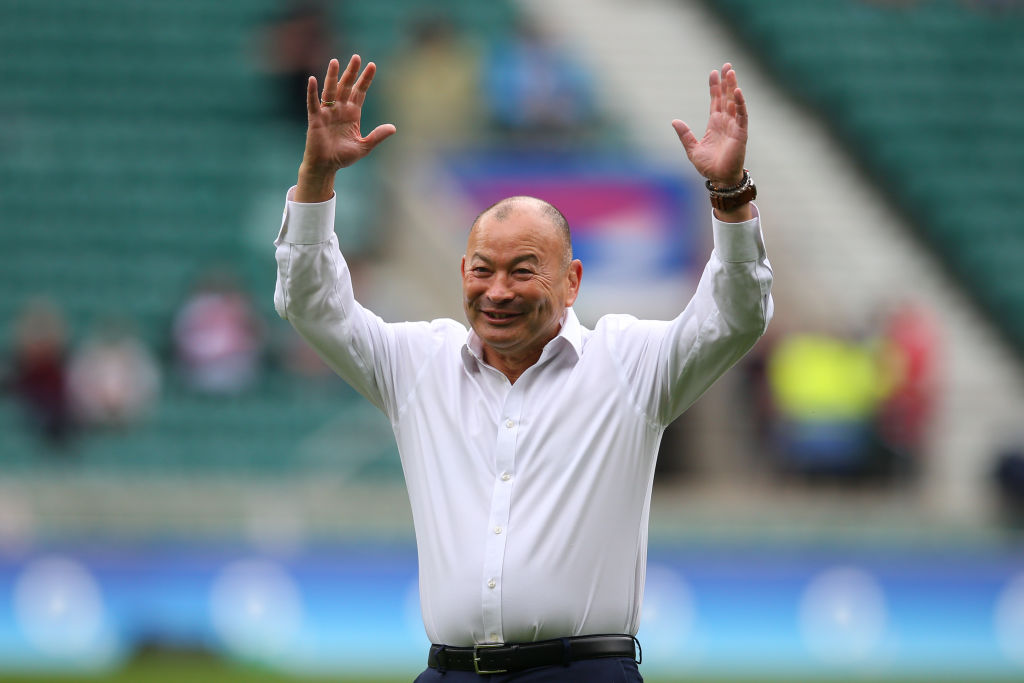
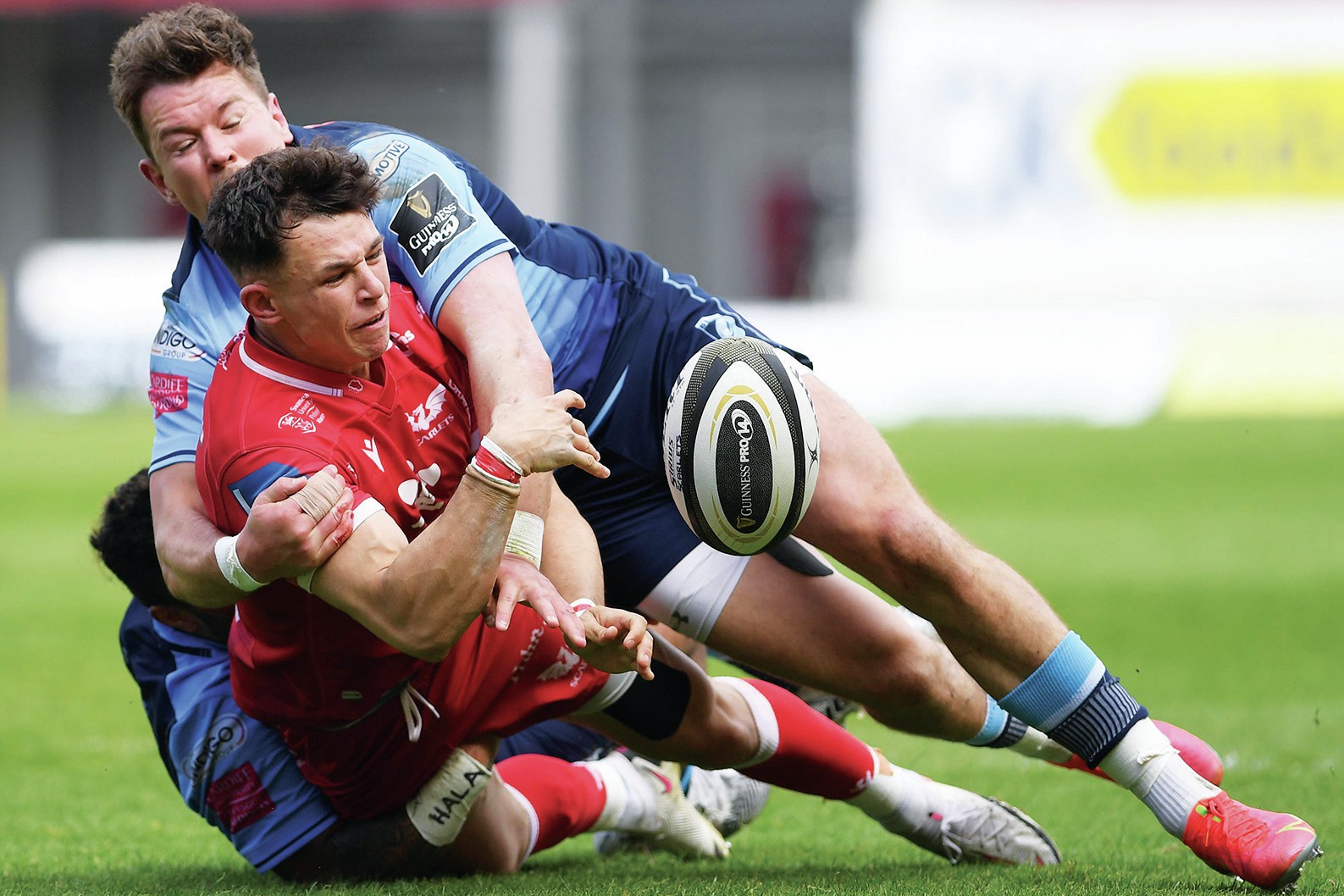
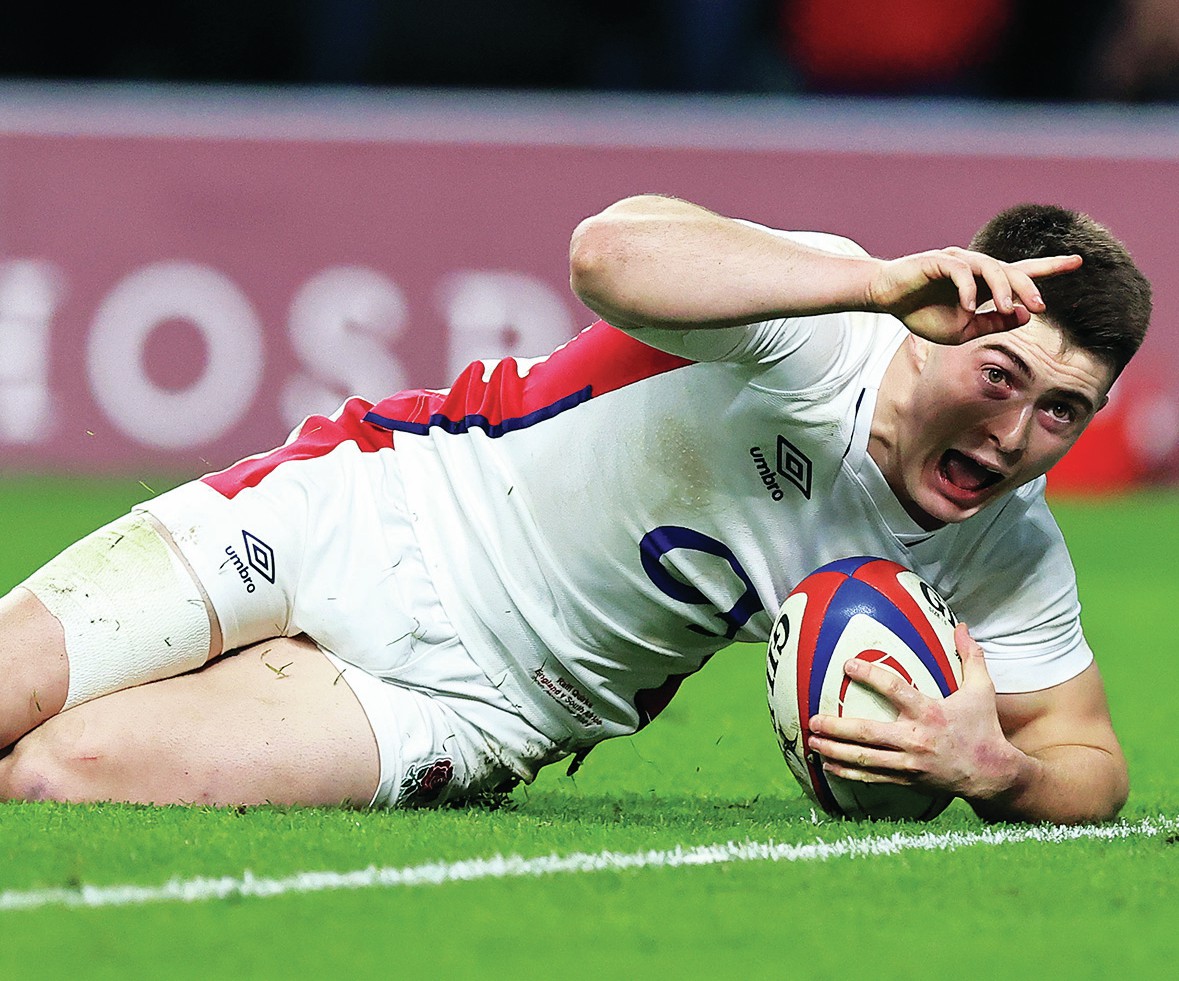
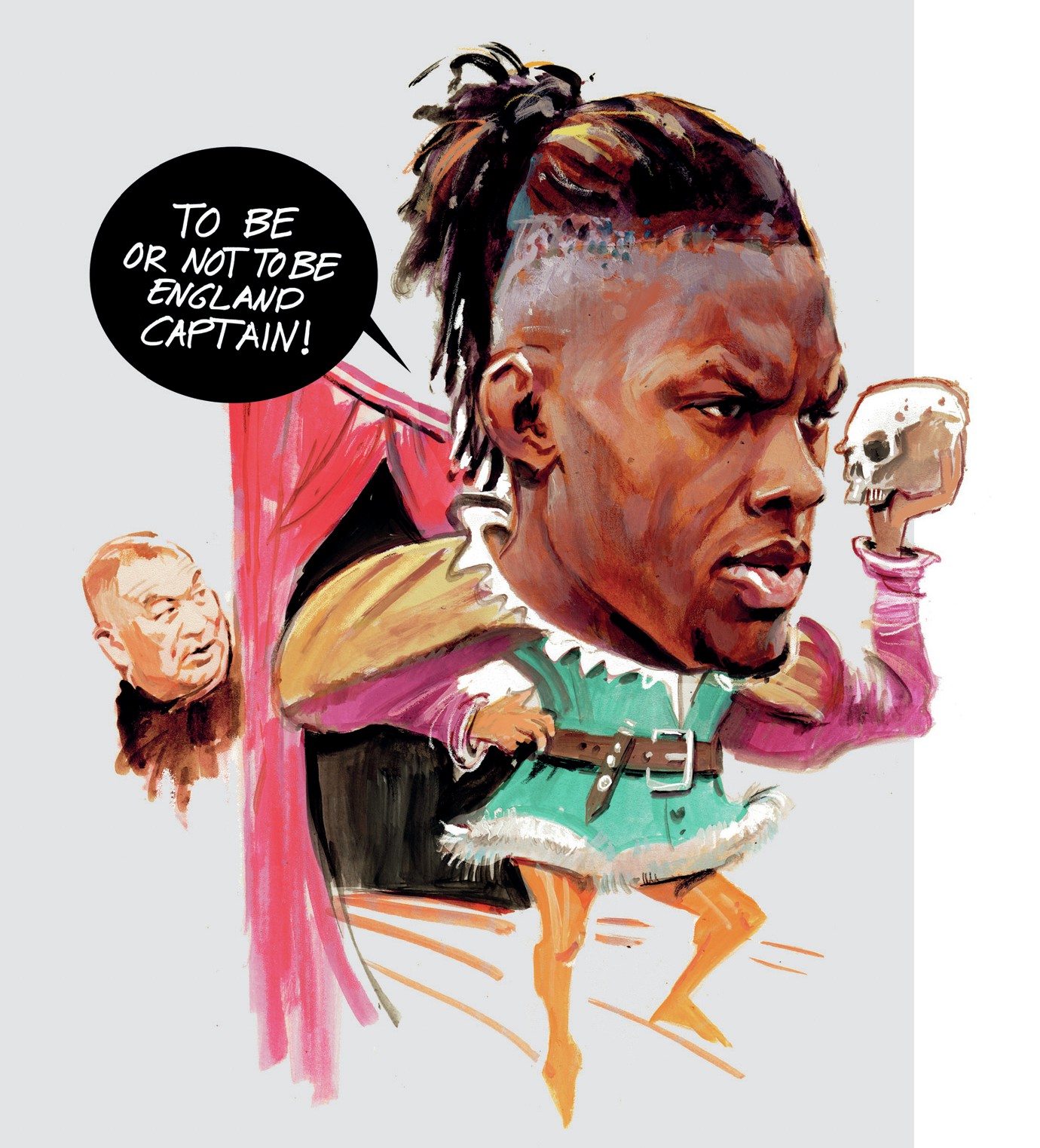
You must be logged in to post a comment Login